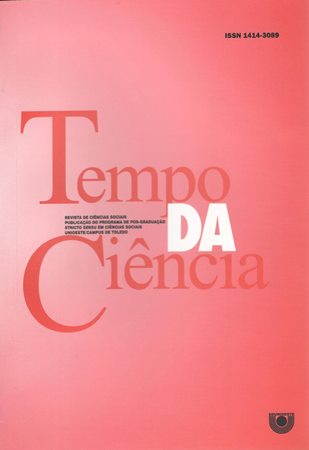FAMÍLIAS E REDES DE ASSISTÊNCIA EM PELOTAS/ RS: REFLEXÕES A PARTIR DE UM ESTUDO SOBRE AS RELAÇÕES DE RECIPROCIDADE EM VILAS DE GRUPOS POPULARES
DOI:
https://doi.org/10.48075/rtc.v19i37.9097Palavras-chave:
Famílias de grupos populares. Redes de assistência. Reciprocidade. Desigualdade.Resumo
Partindo-se da perspectiva etnográfica, este estudo se volta para preocupaçõesligadas às dinâmicas de vida dos grupos populares, a partir das relações de reciprocidadeestabelecidas entre as famílias e as redes de assistência social organizadas em duas vilas dacidade de Pelotas / RS. Serão apresentadas as lógicas inscritas nestas relações dereciprocidade, em que a tríplice obrigação de dar, receber e retribuir se apresenta comoestratégia para se analisar as inclusões nos programas sociais da assistência. O métodoetnográfico foi adotado a fim de orientar as interpretações dos dados de campo, e contribuiuno sentido de mapear as ações das redes de assistência organizadas nos universos investigados,e apresentar o ponto de vista das famílias, profissionais e voluntários. Este estudo utilizousede dois conjuntos de dados: quantitativos, obtidos a partir de registros domiciliares detodos os beneficiários do programa Bolsa Família, e qualitativos que se realizou em duas vilasda cidade de Pelotas, o loteamento Dunas e a vila Pestano.Downloads
Publicado
Como Citar
Edição
Seção
Licença
Aviso de Direito Autoral Creative Commons
Política para Periódicos de Acesso Livre
Autores que publicam nesta revista concordam com os seguintes termos:
1. Autores mantém os direitos autorais e concedem à revista o direito de primeira publicação, com o trabalho simultaneamente licenciado sob a Licença Creative Commons Attribution que permite o compartilhamento do trabalho com reconhecimento da autoria e publicação inicial nesta revista.
2. Autores têm autorização para assumir contratos adicionais separadamente, para distribuição não-exclusiva da versão do trabalho publicada nesta revista (ex.: publicar em repositório institucional ou como capítulo de livro), com reconhecimento de autoria e publicação inicial nesta revista.
3. Autores têm permissão e são estimulados a publicar e distribuir seu trabalho online (ex.: em repositórios institucionais ou na sua página pessoal) a qualquer ponto antes ou durante o processo editorial, já que isso pode gerar alterações produtivas, bem como aumentar o impacto e a citação do trabalho publicado (Veja O Efeito do Acesso Livre).
Licença Creative Commons
Esta obra está licenciada com uma Licença Creative Commons Atribuição-NãoComercial-CompartilhaIgual 4.0 Internacional, o que permite compartilhar, copiar, distribuir, exibir, reproduzir, a totalidade ou partes desde que não tenha objetivo comercial e sejam citados os autores e a fonte.


